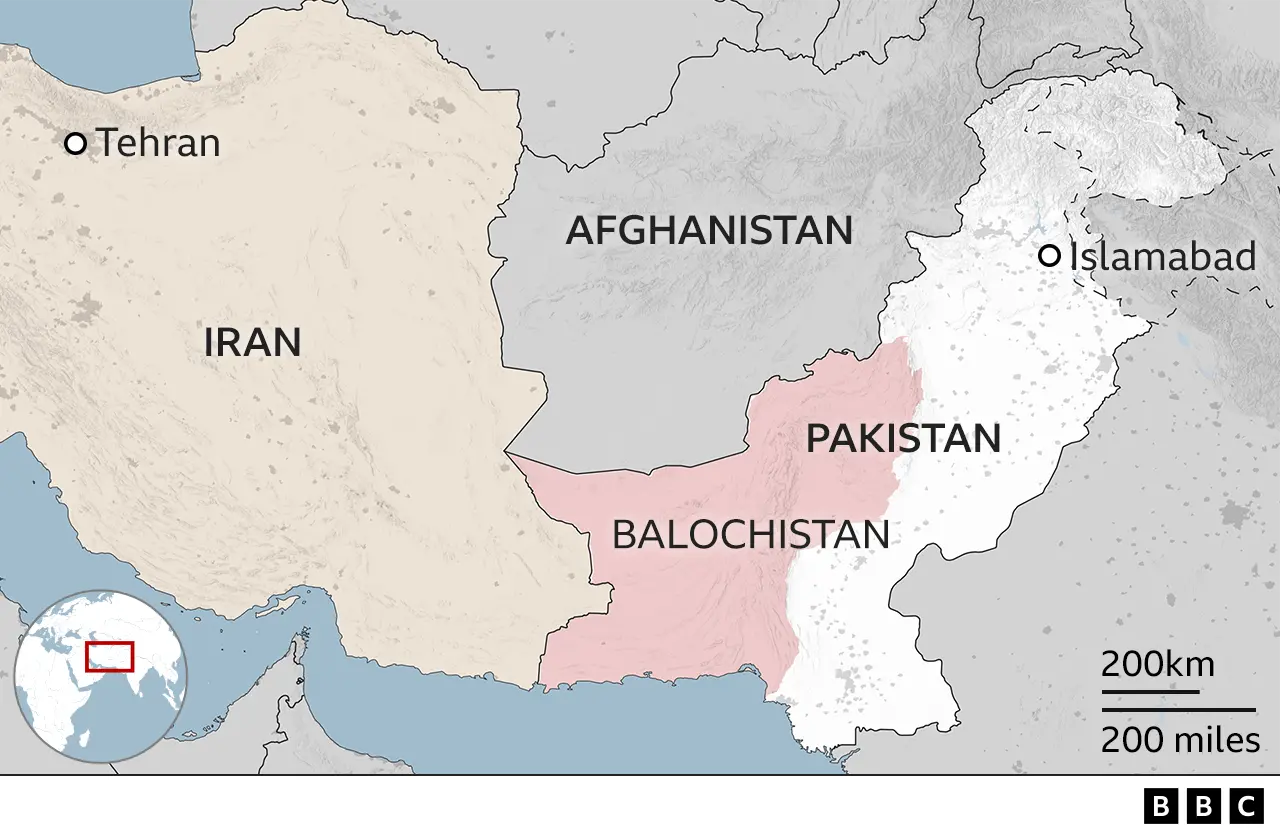1 hour ago
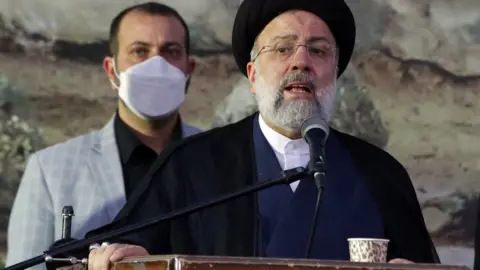
Ebrahim Raisi is a hard-line cleric close to Iran’s Supreme Leader Ayatollah Ali Khamenei, whose election as president in 2021 consolidated the control of conservatives over every part of the Islamic Republic.
The 63-year-old former judiciary chief succeeded Hassan Rouhani after a landslide victory in a poll which saw many prominent moderate and reformist candidates barred and the majority of voters stay away.
He took power as Iran faced multiple challenges, including acute economic problems, escalating regional tensions, and stalled talks on the revival of a nuclear deal with world powers.
However, his time in office has been dominated by the anti-government protests that swept across Iran in 2022, as well as the current war in Gaza between Israel and the Iran-backed Palestinian group Hamas, during which Iran’s shadow war with Israel burst into the open.
He has also faced continuing calls from many Iranians and human rights activists for an investigation into his alleged role in the mass executions of political prisoners in the 1980s.
Ebrahim Raisi was born in 1960 in Mashhad, Iran’s second biggest city and home to the country’s holiest Shia Muslim shrine. His father, who was a cleric, died when he was five years old.
Mr Raisi, who wears a black turban identifying him in Shia tradition as a descendant of the Prophet Muhammad, followed his father’s footsteps and started attending a seminary in the holy city of Qom at the age of 15.
While a student he took part in protests against the Western-backed Shah, who was eventually toppled in 1979 in an Islamic Revolution led by Ayatollah Ruhollah Khomeini.
After the revolution he joined the judiciary and served as a prosecutor in several cities while being trained by Ayatollah Khamenei, who became Iran’s president in 1981.
Links to Iran’s ‘death committee’
Mr Raisi became the deputy prosecutor in Tehran when he was only 25.
While in that position he served as one of four judges who sat on secret tribunals set up in 1988 that came to be known as the “Death Committee”.
The tribunals “re-tried” thousands of prisoners already serving jail sentences for their political activities. Most were members of the leftist opposition group Mujahedin-e Khalq (MEK), also known as the People’s Mujahedin Organisation of Iran (PMOI).
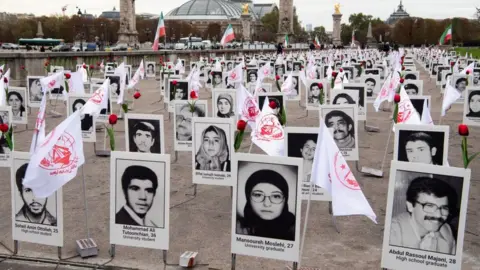
The exact number of those who were sentenced to death by the tribunals is not known, but human rights groups have said about 5,000 men and women were executed and buried in unmarked mass graves in what constituted a crime against humanity.
Leaders of the Islamic Republic do not deny that the executions happened, but they do not discuss details and the legality of the individual cases.
Mr Raisi has repeatedly denied his role in the death sentences. But he has also said they were justified because of a fatwa, or religious ruling, by Ayatollah Khomeini.
In 2016, an audio tape of a 1988 meeting between Mr Raisi, several other members of the judiciary and then Deputy Supreme Leader Ayatollah Hossein Ali Montazeri (1922-2009) was leaked.
In the tape, Montazeri is heard describing the executions as “the biggest crime in the history of the Islamic Republic”. A year later Montazeri lost his position as Khomeini’s designated successor and Ayatollah Khamenei became the Supreme Leader upon Khomeini’s death.
When asked in 2021 about his alleged role in the mass executions, Mr Raisi told reporters: “If a judge, a prosecutor, has defended the security of the people, he should be praised… I am proud to have defended human rights in every position I have held so far.”
Unlikely presidential ambitions
In 2017, Mr Raisi surprised observers by standing for the presidency.
Mr Rouhani, a fellow cleric, won a second term by a landslide in the election’s first round, receiving 57% of the vote. Mr Raisi, who presented himself as an anti-corruption fighter but was accused by the president of doing little to tackle graft as deputy judiciary chief, came second with 38%.
The loss did not tarnish Mr Raisi’s image and in 2019 Ayatollah Khamenei named him to the powerful position of head of the judiciary.
The following week, he was also elected as deputy chairman of the Assembly of Experts, the 88-member clerical body responsible for electing the next Supreme Leader.
As judiciary chief, Mr Raisi implemented reforms that led to a reduction in the number of people sentenced to death and executed for drug-related offences in the country. However, Iran continued to put more people to death than any other country apart from China.
The judiciary also continued to work with the security services to crack down on dissent and to prosecute many Iranians with dual nationality or foreign permanent residency on spying charges.
Then-US President Donald Trump imposed sanctions on Mr Raisi over his human rights record in 2019. He was accused of having administrative oversight over the execution of individuals who were juveniles at the time of their alleged crimes, and of being involved in the violent crackdown on the protests by the opposition Green Movement after the disputed presidential election in 2009.
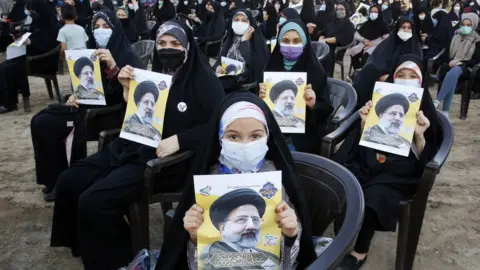
When Mr Raisi announced his candidacy for the 2021 presidential election, he declared that he had “come as an independent to the stage to make changes in the executive management of the country and to fight poverty, corruption, humiliation and discrimination”.
The election was subsequently overshadowed when the hard-line Guardian Council disqualified several prominent moderate and reformist candidates. Dissidents and some reformists urged voters to boycott the poll, complaining that the process had been engineered to ensure Mr Raisi faced no serious competition.
He went on to secure a crushing victory, winning 62% of the vote in the first round. However, turnout was just under 49% – a record low for a presidential election since the 1979 revolution.
When he started his four-year term that August, Mr Raisi promised to “improve the economy to resolve the nation’s problems” and to “support any diplomatic plan” that led to the lifting of sanctions.
He was referring to the long-stalled negotiations on reviving a 2015 deal limiting Iran’s nuclear activities, which has been close to collapse since the Trump administration abandoned it and reinstated crippling US economic sanctions in 2018. Iran has since retaliated by increasingly breaching the restrictions.
Mr Raisi also pledged to improve ties with Iran’s neighbours while at the same time defending its regional activities, describing them as a “stabilizing force”.
A deal with the US on reviving the nuclear deal was reportedly close in August 2022, despite Mr Raisi’s tough stance in the negotiations. However, those efforts were then overtaken by events in Iran.
Rocked by anti-government protests
That September, the Islamic Republic was shaken by mass protests demanding the end of clerical rule.
The “Woman, Life, Freedom” movement was sparked the death in custody of Mahsa Amini, a young woman who had been detained by morality police in Tehran for allegedly wearing her hijab “improperly”. Authorities denied she was mistreated, but a UN fact-finding mission found she was “subjected to physical violence that led to her death”.
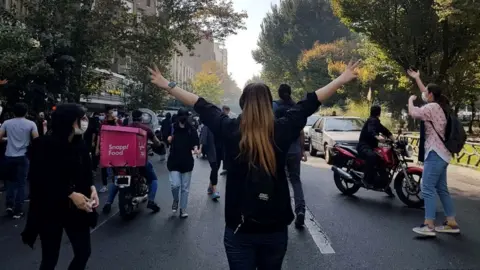
Mr Raisi vowed to “deal decisively” with the unrest and authorities suppressed them with force. They have not released an official death toll, but the UN mission said credible figures suggested that as many as 551 protesters were killed by security forces, most of them by gunfire. The government says 75 security personnel were killed.
More than 20,000 other protesters were reportedly detained and nine young male protesters were executed after what the UN mission found were summary proceedings that relied on confessions extracted under torture.
Although the protests eventually subsided, there continued to be widespread discontent at the clerical establishment and hijab laws. Many women and girls defiantly stopped covering their hair in public – an act that Iran’s parliament and Mr Raisi sought to confront with new legislation and new crackdowns.
Regional tensions soar
In March 2023, his government agree to a surprise rapprochement with Iran’s bitter rival, regional Sunni power Saudi Arabia, seven years after they had severed diplomatic relations.
But regional tensions soared that October when Hamas carried out an unprecedented cross-border attack on southern Israel and Israel responded by launching a wide-scale military campaign in Gaza.
At the same time, Iran’s network of allied armed groups and proxies operating across the Middle East – including Hezbollah in Lebanon, the Houthis in Yemen, and various militias in Iraq and Syria – significantly stepped up their attacks against Israel in what they said was a demonstration of solidarity with the Palestinians.
Fears of that the escalation would spark a region war were heightened in April, after Iran carried out its first direct military strike on Israel.
Mr Raisi supported the decision to launch more than 300 drones and missiles at Israel in retaliation for a deadly strike on the Iranian consulate in Syria. Almost all of them were shot down by Israel, Western allies and Arab partners and an airbase in southern Israel sustained only minor damage when it was hit.
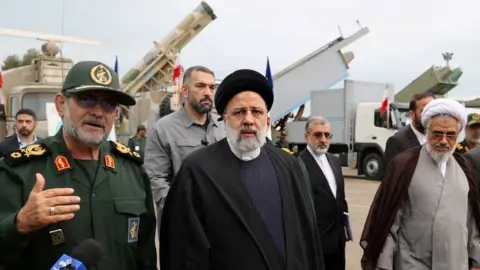
Israel responded by launching a missile that hit an Iranian air base following Western calls for restraint.
Mr Raisi played down the significance of that attack and said Iran’s missile and drone strike “showed the steely determination of our nation”.
On Sunday, hours before his helicopter crashed in north-western Iran, Mr Raisi emphasises Iran’s support for the Palestinians, declaring that “Palestine is the first issue of the Muslim world”.
Little is known about Mr Raisi’s private life except that his wife, Jamileh, teaches at Shahid Beheshti University in Tehran, and that they have two adult daughters. His father-in-law is Ayatollah Ahmad Alamolhoda, the hardline Friday prayer leader in Mashhad.
D/C: Sounds like an obit. I am sure there will be many conspiracy theories, Israel, US, IRGC, Saudi, Kurds, UK etc. If he does not live!
Aljazeera on the latest of the helicopter crash:





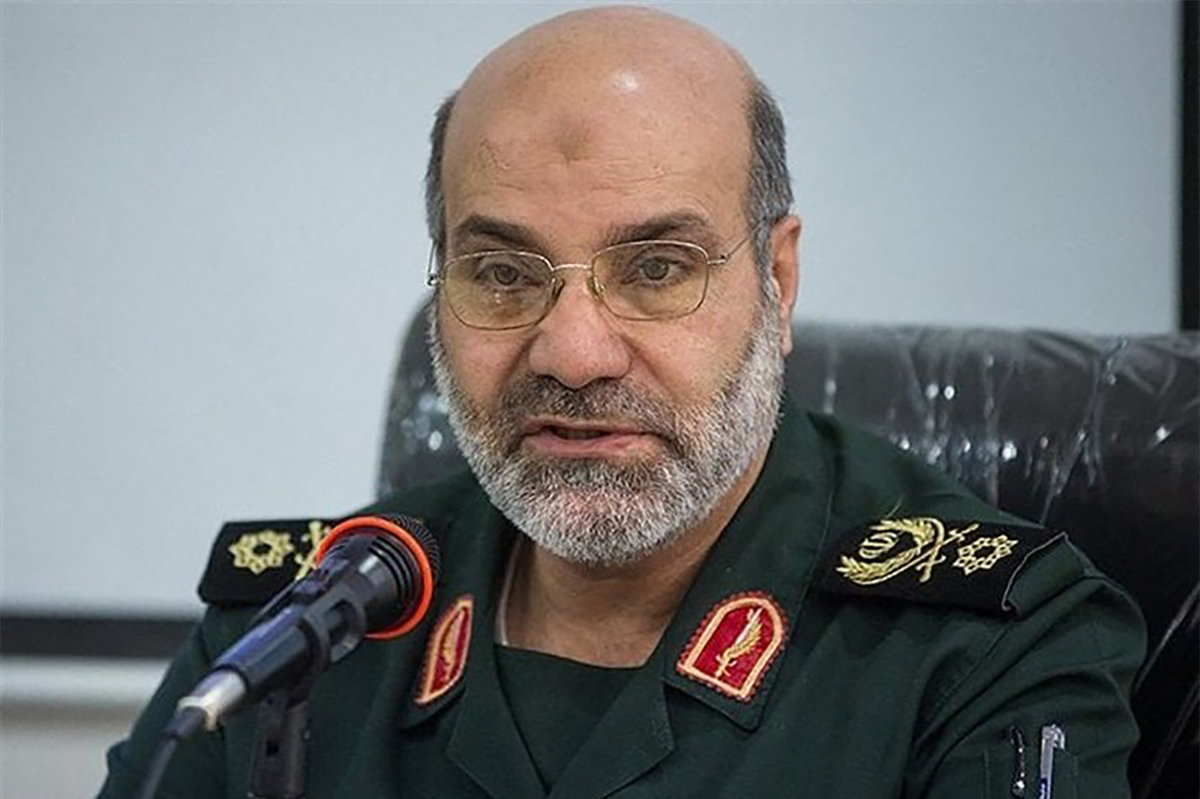
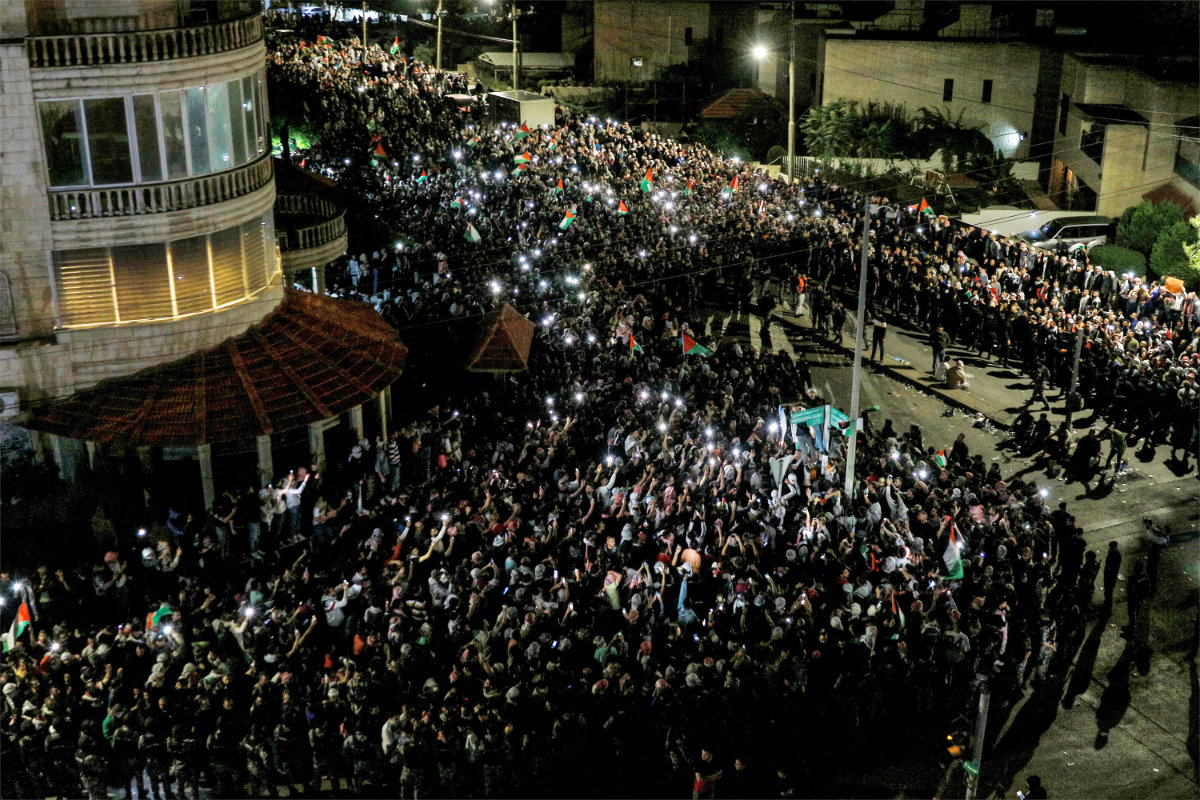
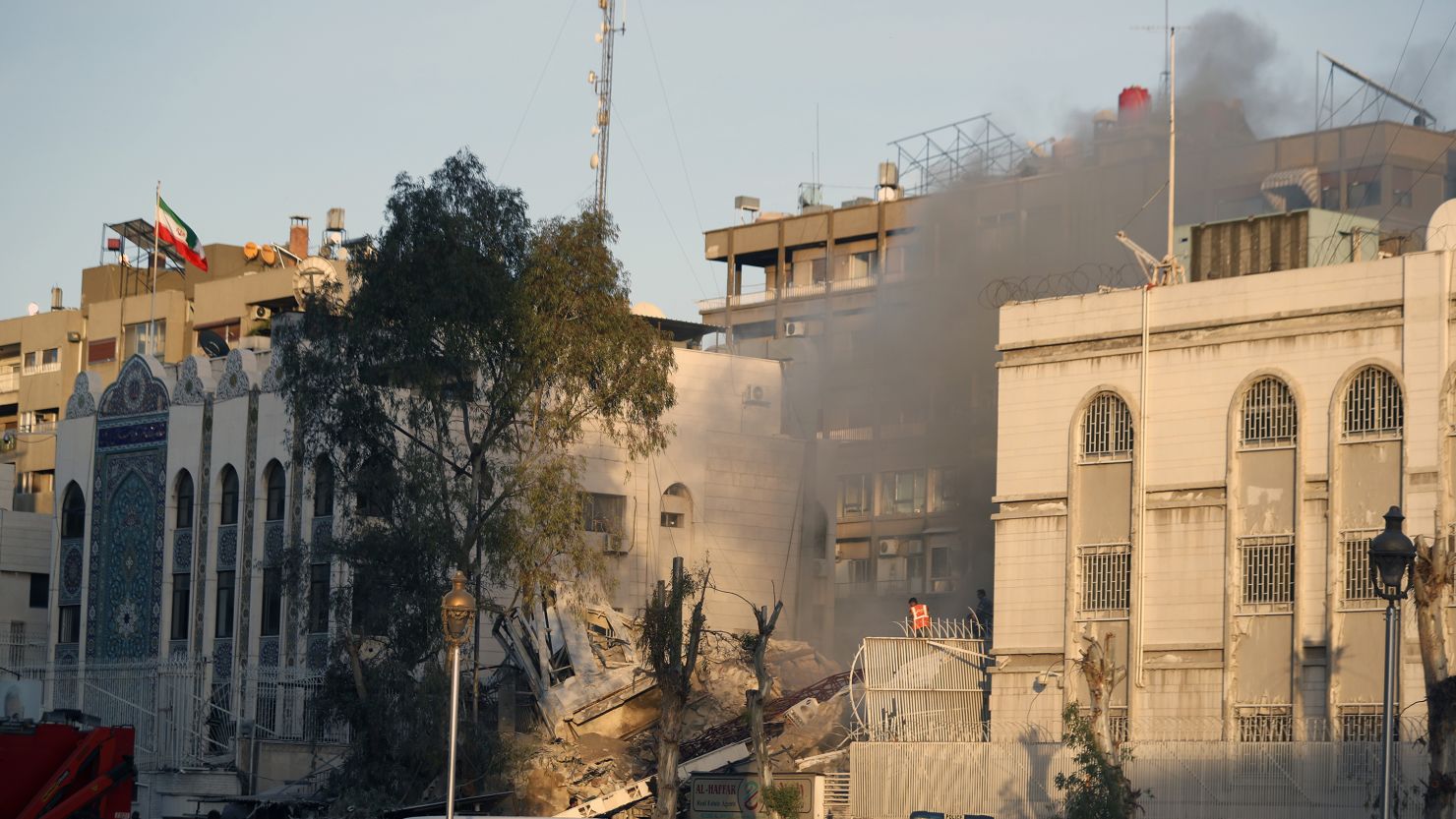
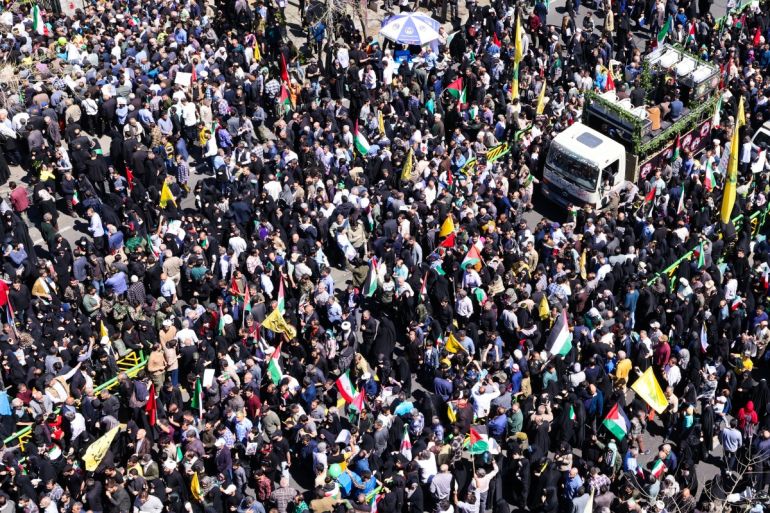
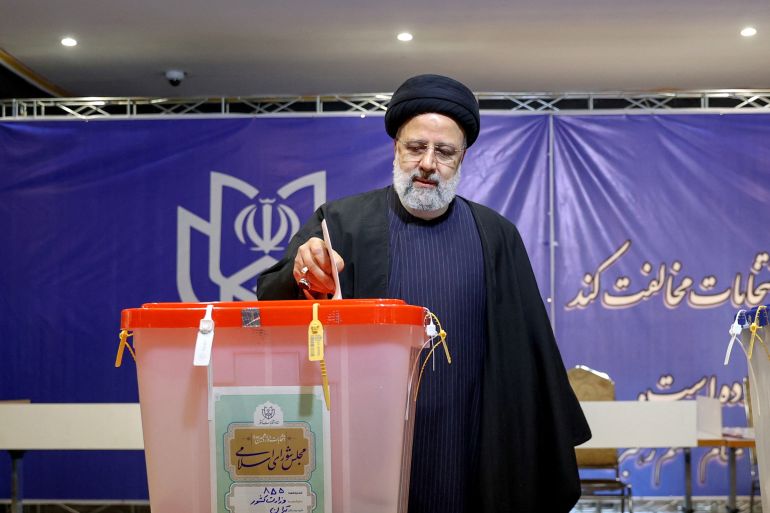

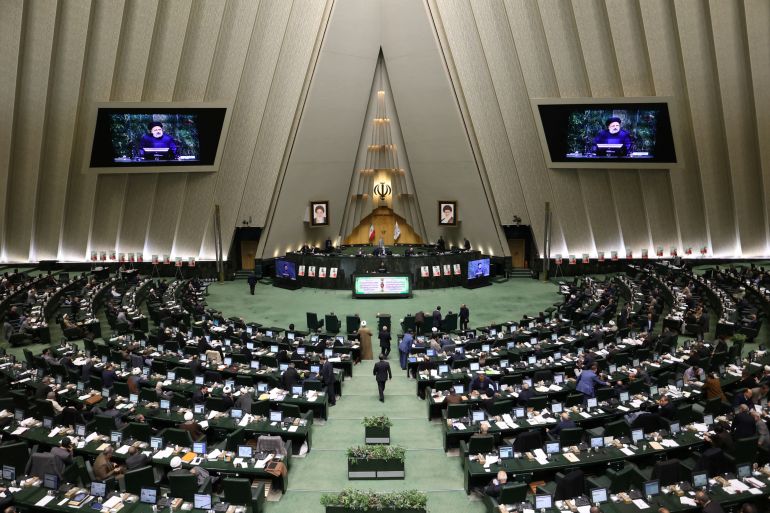


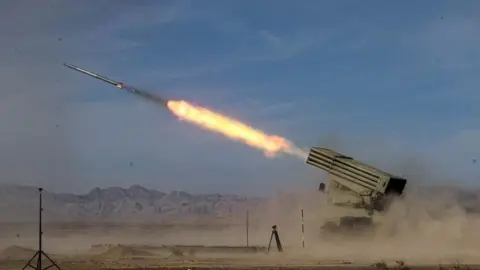 ReutersIranian missiles – seen here during a training drill – have hit Pakistan, Iraq and Syria in recent days
ReutersIranian missiles – seen here during a training drill – have hit Pakistan, Iraq and Syria in recent days